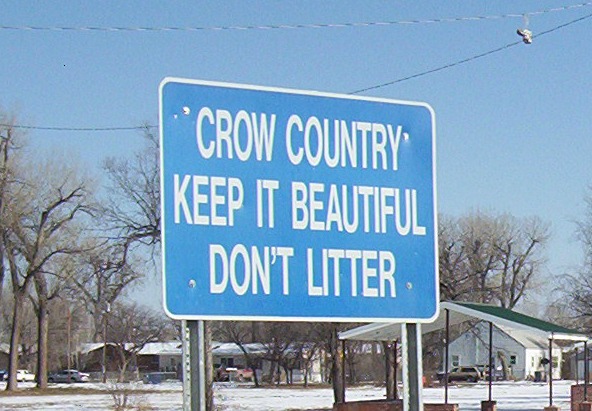A huge new coal-mining project just approved by the federal government pits a Montana tribe against native communities in the Pacific Northwest.
The Crow Nation in southern Montana overlaps the coal-rich Powder River Basin. The tribe is sitting on a deposit of up to 1.4 billion tons of coal — more than the United States produces in a year — and on Thursday, the federal government approved the lease of that coal to mining company Cloud Peak Energy. The company has begun preliminary work on a mine that could eventually produce up to 10 million tons of coal every year, much of which it hopes to move through three proposed export terminals in Washington and Oregon to sell to Asian markets.
As demand for coal in the U.S. fizzles thanks to the natural-gas boom, the coal industry is banking on a growing Asian appetite for cheap power to keep it afloat. And the Crow Nation is banking on the deal with Cloud Peak to turn its fortunes around. The Associated Press details what’s in it for the tribe:
Cloud Peak paid the tribe $1.5 million upon Thursday’s [Bureau of Indian Affairs] approval, bringing its total payments to the tribe so far to $3.75 million.
Future payments during an initial five-year option period could total up to $10 million. Cloud Peak would pay royalties on any coal extracted and has agreed to give tribal members hiring preference for mining jobs.
The company also will provide $75,000 a year in scholarships for the tribe.
It would have been tough for tribal leaders to turn down such a deal. The New York Times describes bleak life on the reservation:
While coal mining is the largest private sector provider of jobs, half the adult population is unemployed. Homelessness would be pandemic if it were not customary for three or four families to cram into small trailers so crowded that couples sometimes go to motels for moments of privacy and children struggle to do homework through a blare of television.
Three bright days a year come when families receive small bonuses from the tribe, thanks to one coal mine that operates on the reservation, to buy presents for Christmas and beads and tepee canvas for the tribe’s annual powwow. …
The Crow Nation chairman, Darrin Old Coyote, insisted that coal was a gift to his community that goes back to the tribe’s creation story. “Coal is life,” he said. “It feeds families and pays the bills.”
But tribal leaders in western Washington and Oregon feel differently about coal. They’ve been some of the most vocal opponents of the proposed export terminals, warning of the harm that would be done to fisheries, human health, the natural environment, and sacred cultural sites if more and more coal trains start rumbling through the region toward coastal ports. The Affiliated Tribes of Northwest Indians and the Columbia River Inter-Tribal Fish Commission have come out against coal exports. The Crow reportedly lobbied other tribes while trying to win federal approval for the Cloud Peak deal, but it doesn’t look like any officially expressed support.
Cloud Peak says it will take about five years to get the new mine up and running. But if coal opponents succeed in blocking proposed terminals, the whole deal could fall through.




